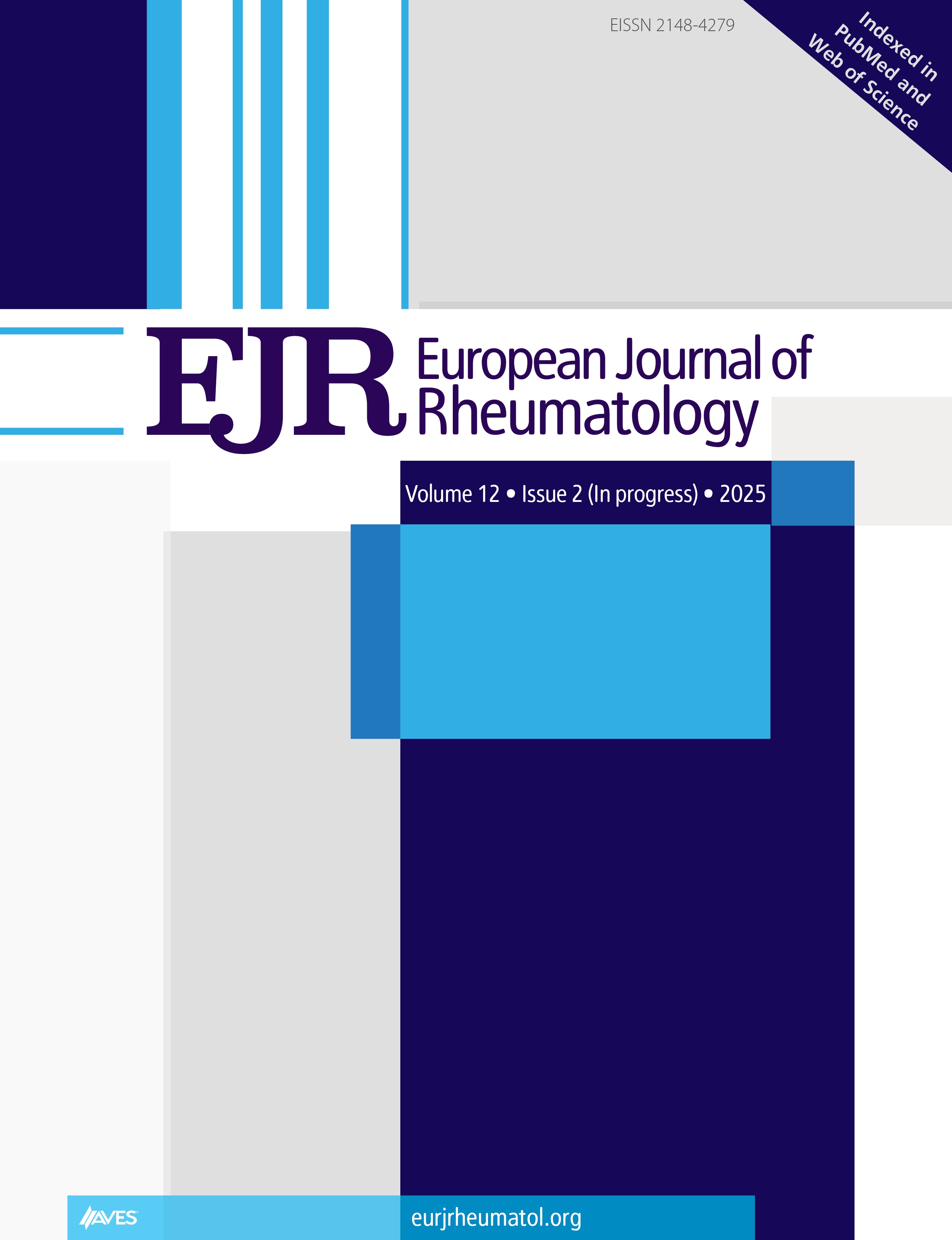Abstract
Objective: The aim of our study is to investigate the relationship between microalbuminuria and flow-mediated dilatation in familial Mediterranean fever (FMF) patients.
Material and Methods: In our study, there were two groups consisting of 54 patients who were out of the attack period (43 of whom had no microalbuminuria and 11 of whom had microalbuminuria) and 40 healthy controls (M/F: 12/28).
Results: There was no statistically difference between patient and control groups’age (25.06±8.07, 22.89±6.00 years, respectively). Flow-mediated dilatation (FMD) percentages were significantly different between the three groups (p=0.01). It was observed that there was a correlation between microalbuminuria and FMD percentage.
Conclusion: Endothelial dysfunction and renal damage occurred as a result of low-grade chronic inflammation. Microalbuminuria, which is the indicator of renal damage and endothelial dysfunction, and FMD show that endothelial functions can be used in the following of early detection of renal damage and endothelial functions in FMF patients.



.png)